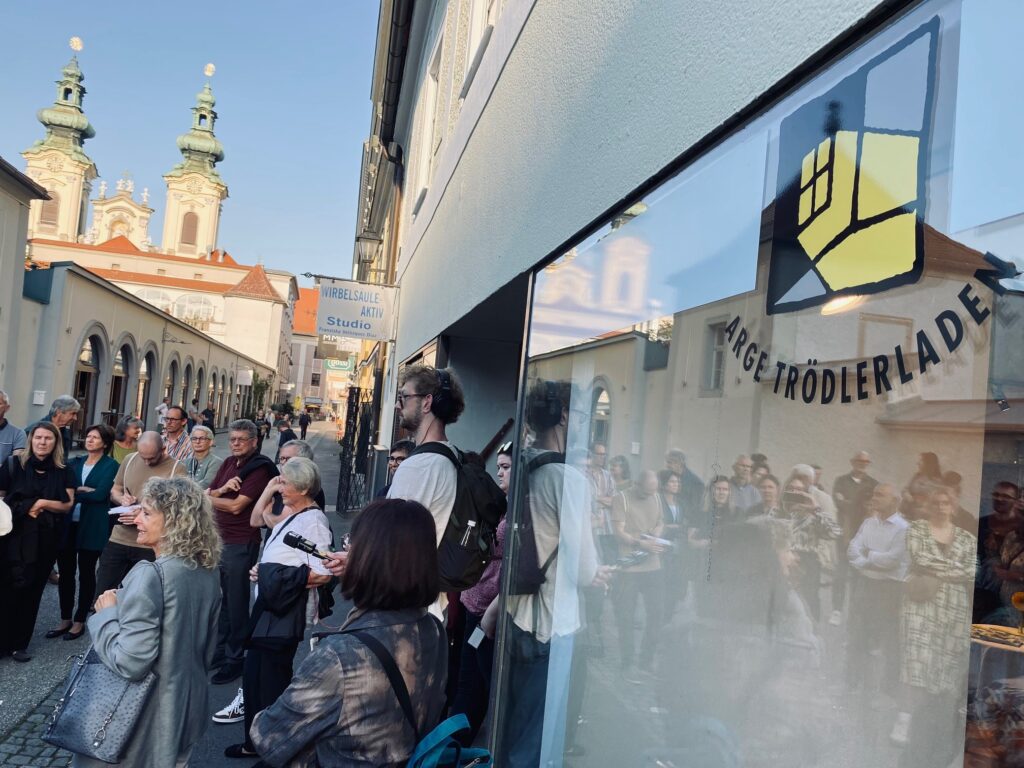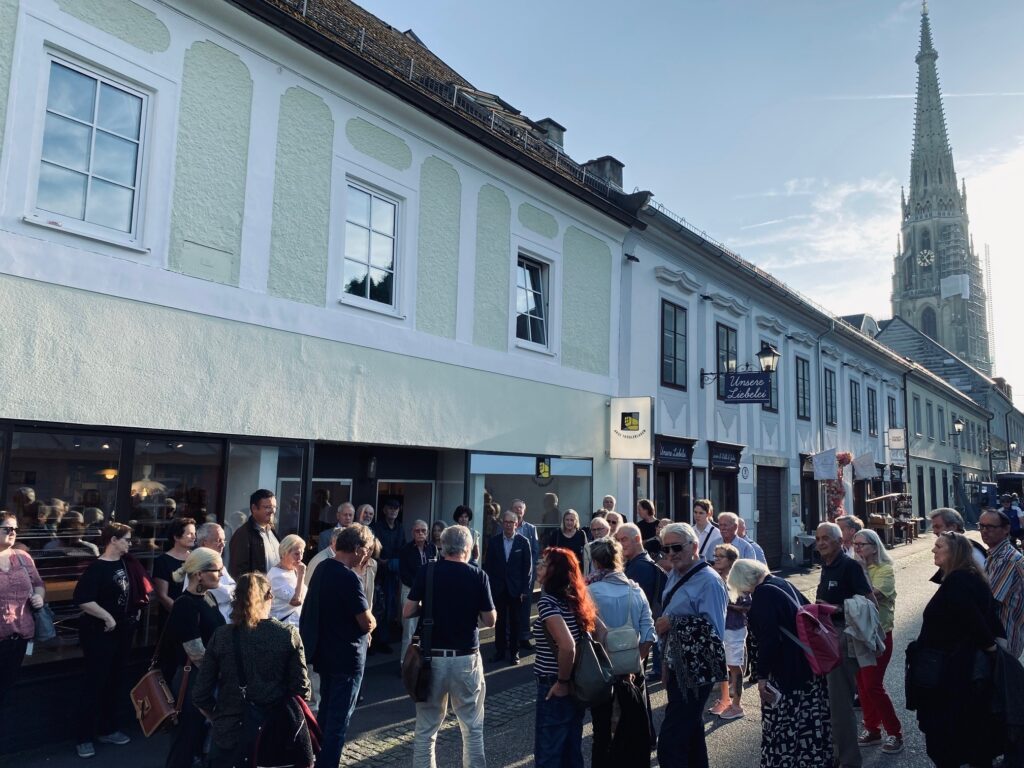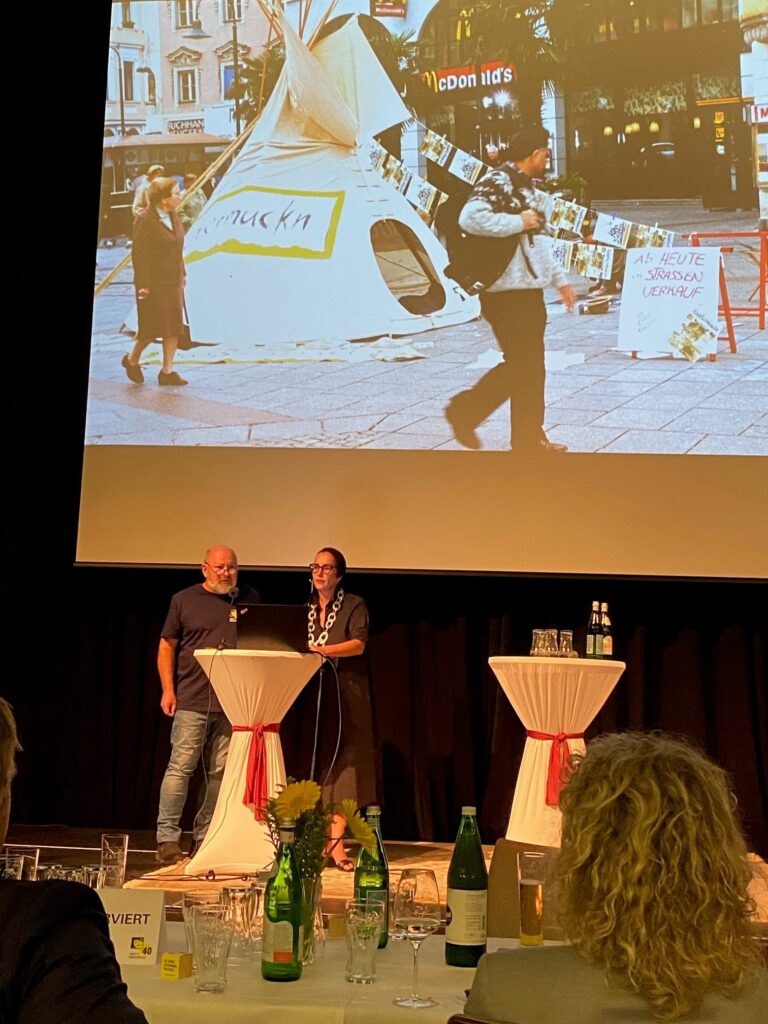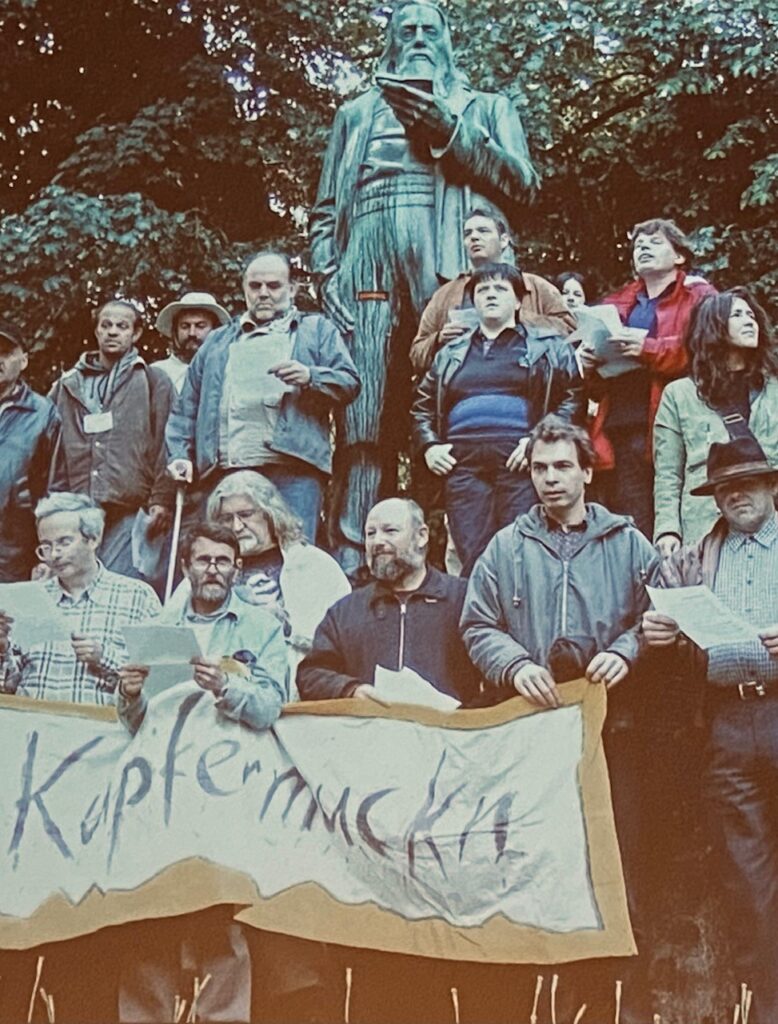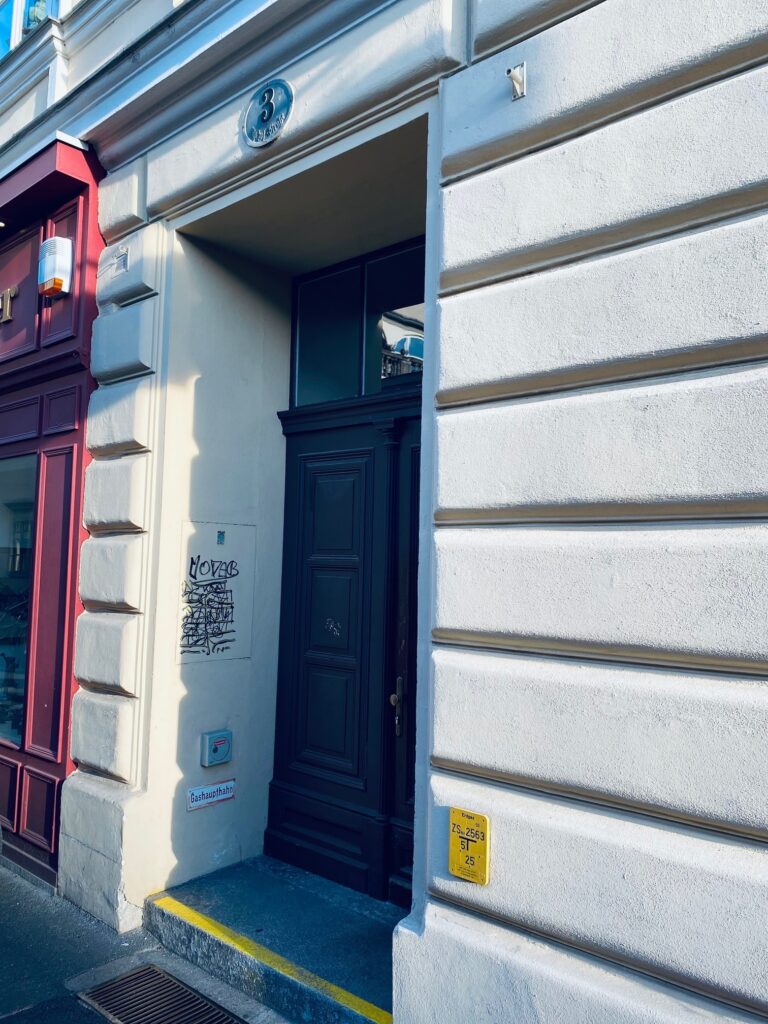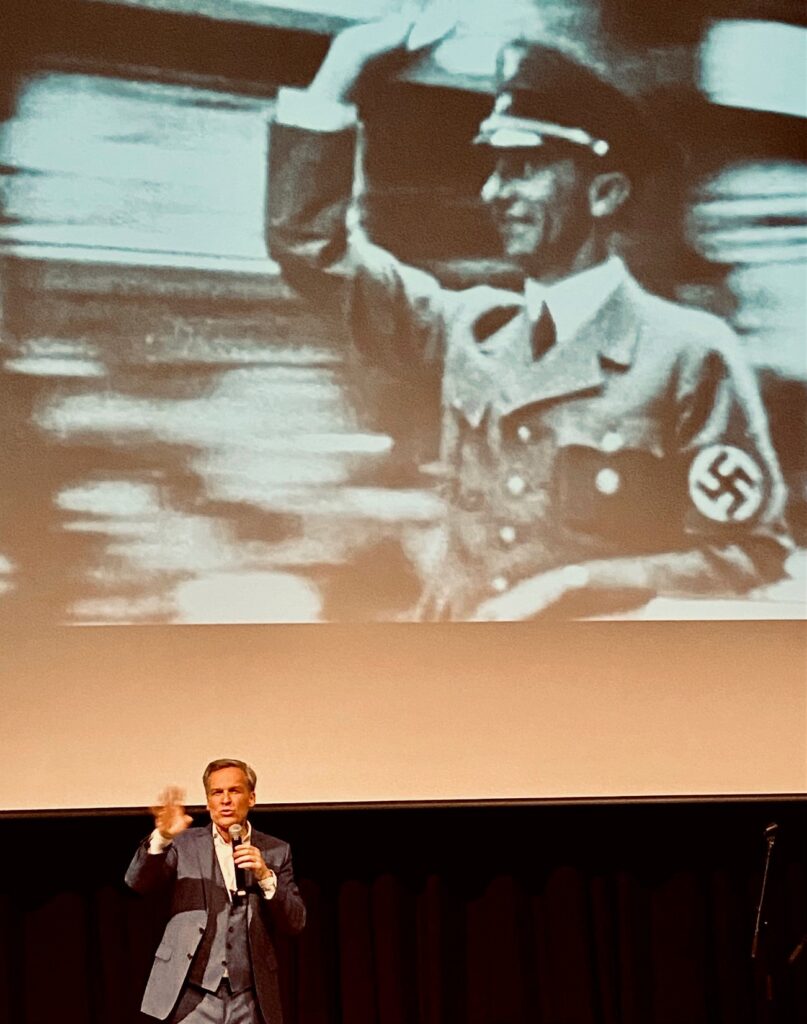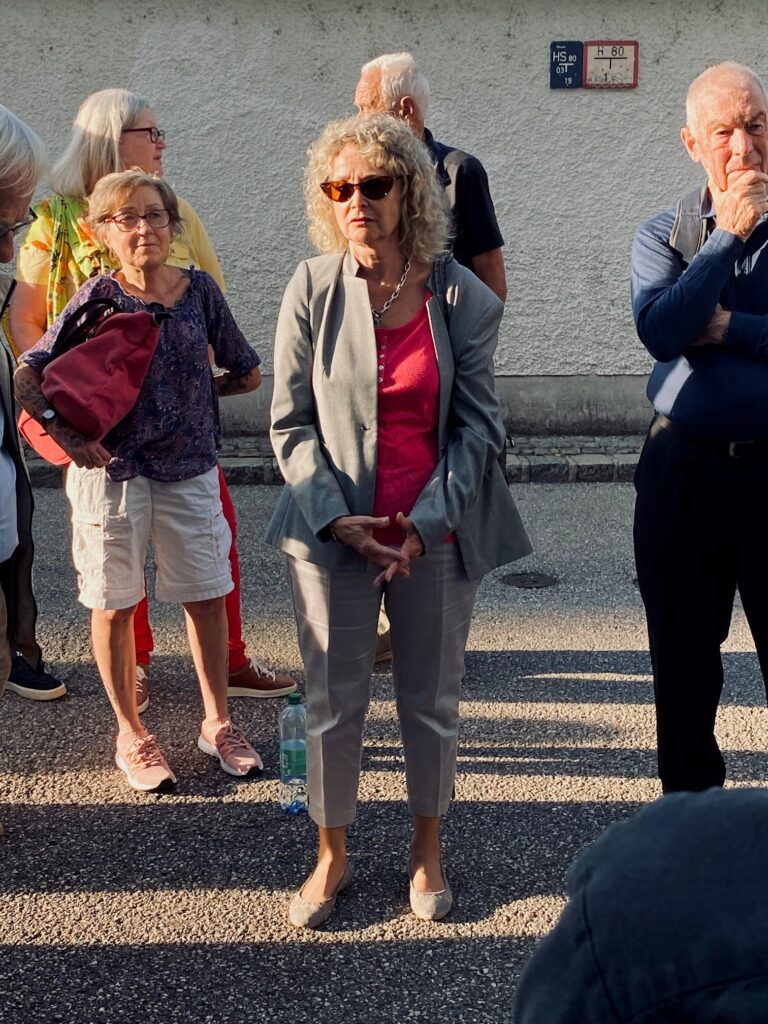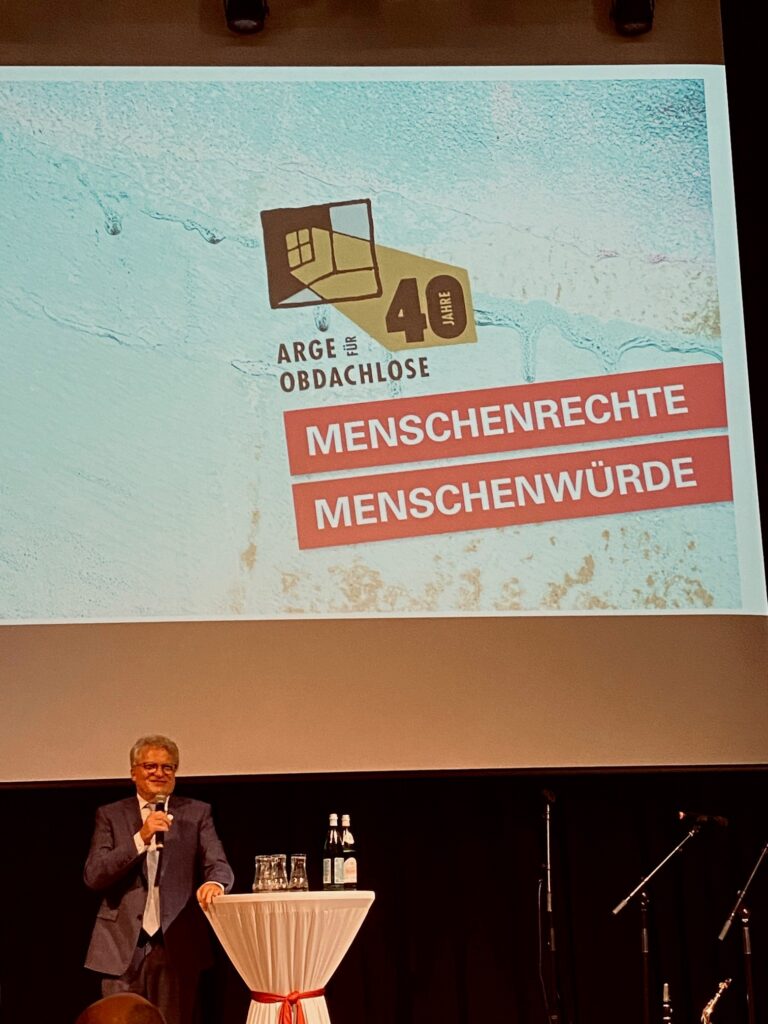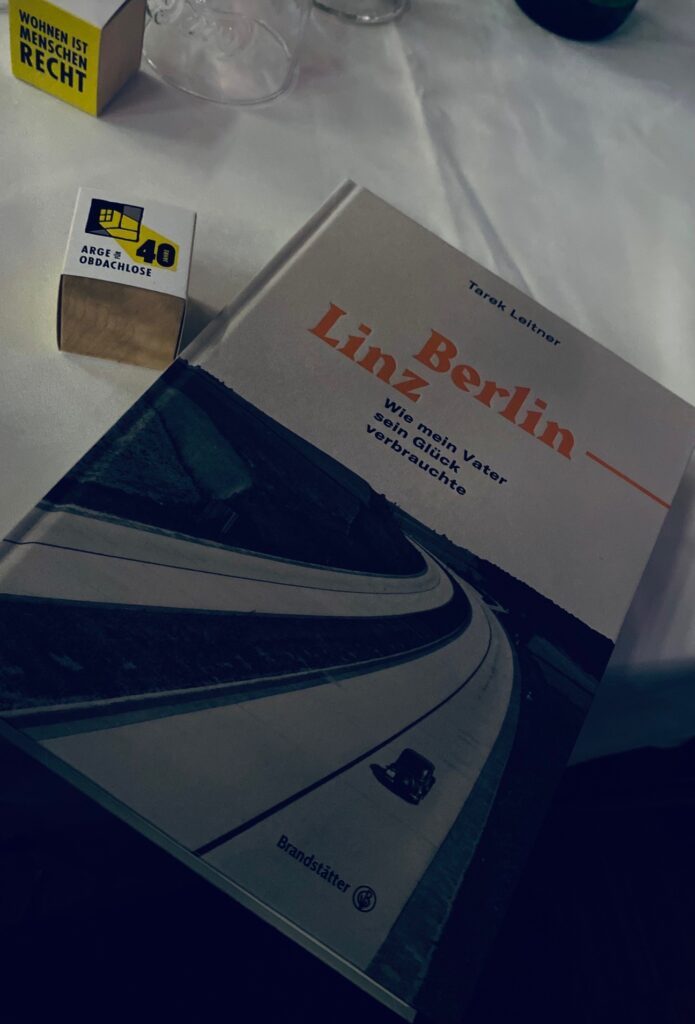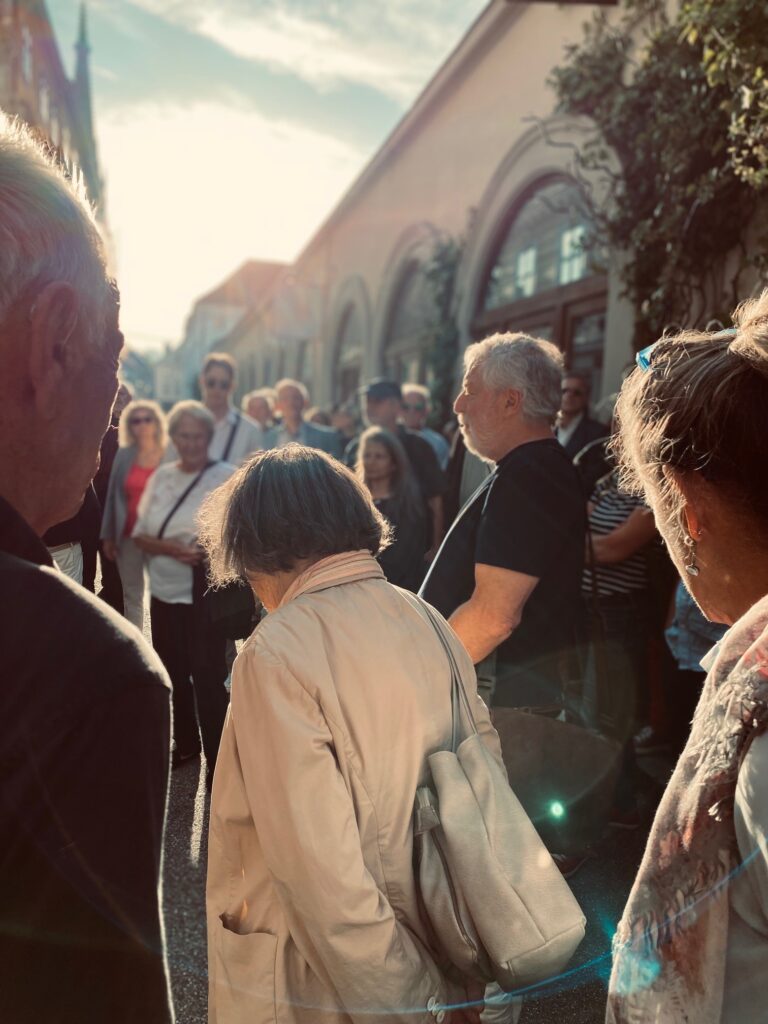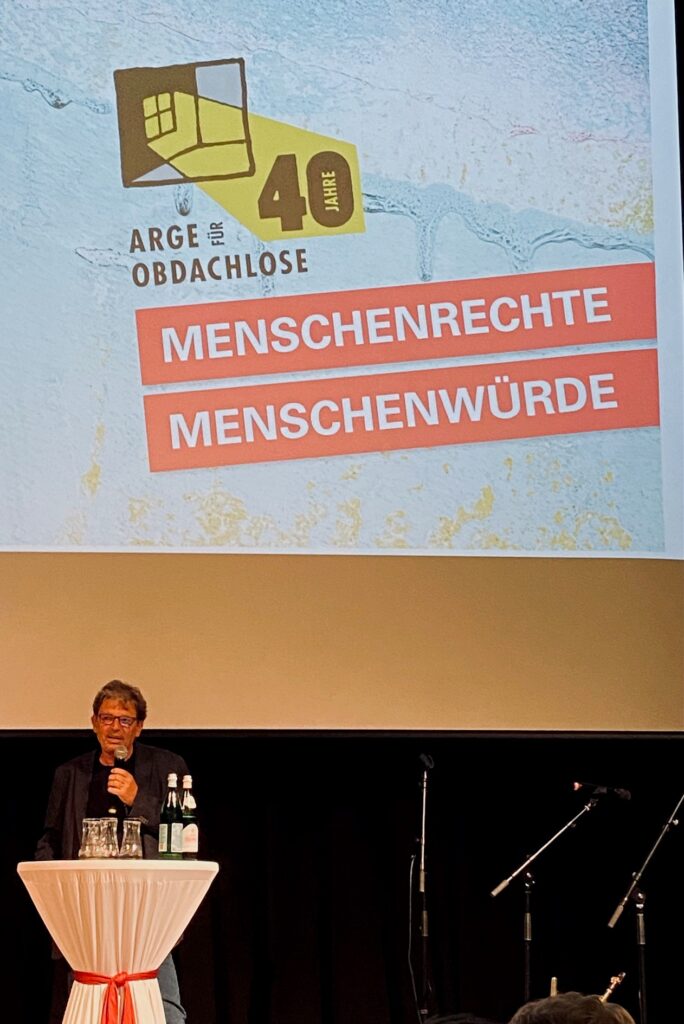
30 Sep The banality of the good and Bischofstrasse.
I am aware that I can only imagine a little of what it means to be homeless through stories. I know some of these stories from my wife, who works in homelessness support. Stories and fates are hidden on all Austrian streets. Bischofstraße in Linz is no exception. This is where Adolf Eichmann lived, where Jewish sugar factory owners were deported, where Tarek Leitner’s father documented history, where “non-settled people” found a foothold again and we found junk in the store. And: this is where the Arge für Obdachlose celebrates its 40th birthday. Many thanks in just a few lines.
Bischofstraße 7.
On September 28, 2023, the Arge für Obdachlose celebrated its 40th anniversary in Linz’s Bischofstraße, where a junk store still reminds us of the beginnings of a life-saving initiative and continues to have an impact. House number 7: Before the war, the Jewish Schwager family produced and sold coveted and popular sweets at this address.
Bischofstraße 3.
A few meters away, in the house at number 3, lived the previously unknown family of Adolf Eichmann, who is considered one of the executors of the “Final Solution to the Jewish Question” in the Second World War and was sentenced to death for it. Several decades later, ORF anchorman, journalist and author Tarek Leitner grew up here and his father captured part of this story on film.
Berlinz.
Alongside Mayor Klaus Luger, Bishop Manfred Scheuer and the President of the Jewish Community Charlotte Hermann, Tarek Leitner was one of the many well-wishers at the 40th anniversary of Arge für Obdachlose. And, he presented his book “Linz – Berlin, Wie mein Vater sein Glück verbrauchte” (Linz – Berlin, How my father used up his luck), which, like the Arge, found its starting point in Bischofstraße and gave me insight.
Banality of the good.
The famous sociologist Hannah Arendt was a trial observer in the 1960s when Adolf Eichmann had to answer to an Israeli court. She coined the description of the “banality of evil”. Based on this quote, Tarek Leitner found a very memorable arc at the end of his presentation and as the quintessence of the evening with the phrase “banality of good”.
The good always lies in the leverage that is available to us. This gathering of helping people reminded me of this once again. A warm meal, an encouraging conversation, a hug – it all starts with gestures. It can continue with appreciative workplaces and lead to inclusive real estate, spatial and urban planning. Supposed banalities must not exclude vulnerable groups in urban planning – think of inconspicuous little things such as armrests on park benches that make it impossible to lie down or the security service that refers homeless people away.
Just this year, a Prix Ars Electronica was awarded for innovations in precisely this area. The prize was awarded to a project that makes visible aspects where vulnerable groups are deprived of opportunities through urban planning instead of being given them. Barriers or exclusion have never brought peace. Tarek Leitner’s father would probably confirm this.
Many thanks.
We have to thank those people who are tirelessly committed to helping other people at work, in their free time, in voluntary or full-time positions and who unwaveringly believe in the good in people.
And of course to the many helping hands of the Arge für Obdachlosigkeit, who simply cannot be thanked often enough for tirelessly building bridges, laying ramps and doing good. That’s not trivial at all.
Not a gift. A recommendation!
The book by Tarek Leitner and the junk store are a clear recommendation, the corresponding links are at the end of the blog post.



